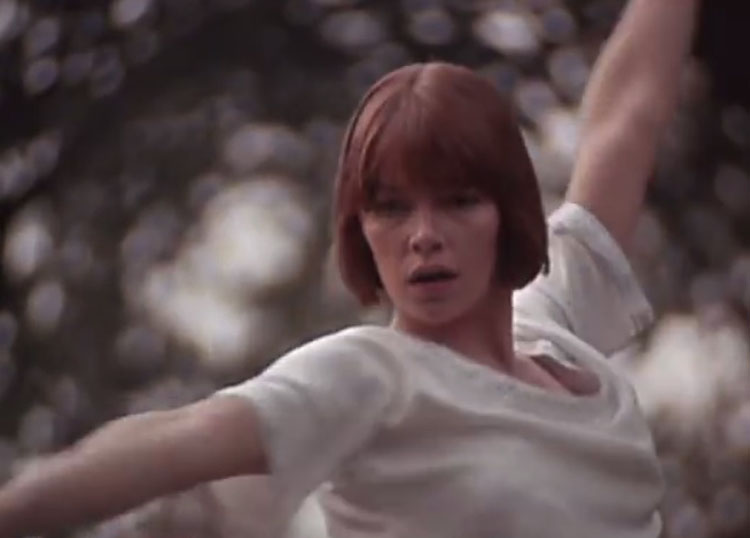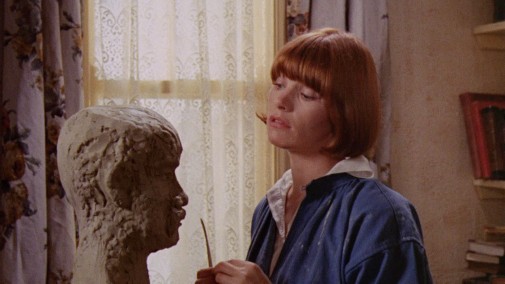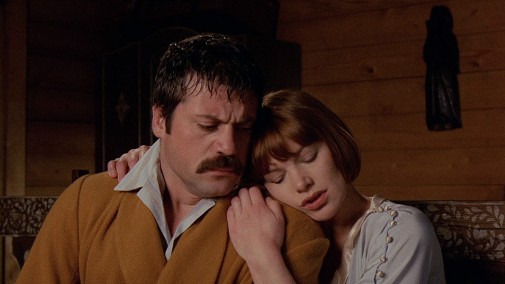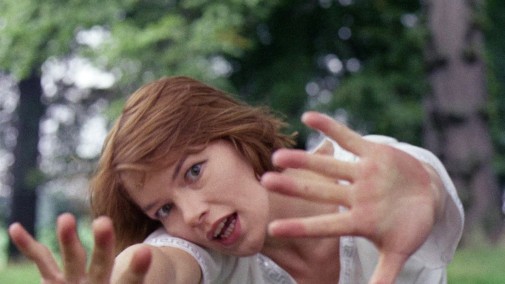
50 years ago, Ken Russell's Women in Love was released in US theaters after having already opened in the UK the year before. Accusations of obscenity and licentiousness followed the picture across the Atlantic and, as it usually happens, polemic was a good catalyst for popularity. Nowadays, such arthouse offerings rarely get mainstream attention but the America of 1970 was a different place as far as moviegoing was concerned. In a time of radical change in society and tastes, Women in Love's tale of bohemian affairs, sexual candor and class hierarchies in 20s England was warmly received by critics and audiences alike. The performance of Glenda Jackson was of particular fame and catapulted the actress to the pantheon of celebrity.
So much so that, by April of 1971, she won the Oscar for Best Actress. To this day, it's one of the weirdest victories in the category's history…

The win wasn't a surprise, however. Women in Love got a lot of attention from the press and Jackson had already cultivated a reputation for herself thanks to obscure masterpieces like Marat/Sade. Moreover, during the period of voting, she was starring in Elizabeth R on British TV, dazzling everyone with the greatest screen portrayal ever made of The Virgin Queen. That surge in mainstream recognizability, great acclaim and the provocative appeal of the film were the ingredients of the victory. Still, Glenda Jackson's first win will never be anything but odd considering the nature of the role and the bizarre qualities of her performance.
In this adaptation of D.H. Lawrence's novel, Jackson plays Gudrun Brangwen, a sculptor whose beloved sister, Ursula, is a schoolteacher. Throughout the film, both start affairs with a pair of upper-class friends, testing the boundaries of commitment and romance, sexual dominance and the roles which gender and class have condemned them to play. The men are Rupert Birkin, a libertine proto-hippie of post-World War I Europe, and Gerald Crich, the son of a mine owning family whose insecurities quickly turn into self-hatred. Theirs is a world of fractured relationships, repressed emotions and a sort of bohemian joie de vivre that's as hollow as it is self-conscious.
Within the realm of these beautiful people, sincerity is hard to come by, although there's plentiful social artifice to be appreciated as well as a good dose of fatalism. Of the quartet of protagonists, Gudrun is by far the strongest individual and the one whose motivations are harder to decipher. From the minute she appears, her face is a mask of severe lines, more capable of morphing into a sneer than drawing a smile. When talking to her sister, Gudrun's words are a beautiful wall of obfuscation, rich in metaphor and poetics. She sculpts those same words into daggers when her interlocutor is the opposite gender, especially when it's Gerald.

Gudrun Brangwen is not an easy person to understand, neither is she a likable heroine.
That said, there's something magnetic about her presence, an ineffable something that arrests our eyes and makes it impossible to look away. Most Oscar-winning performances make a spectacle out of their characters' interiority, telegraphing their inner world for the viewer to see. Jackson takes a very different route, more akin to Isabelle Huppert's minimalism than the robust feeling of someone like Jane Fonda - the following year's Best Actress winner. Hers isn't a performance that translates the mysteries of human psychology. On the contrary, she transmogrifies desire and makes passion into dangerous amorphy.
Still, characterizing Jackson's work as in any way minimalistic seems wrong. Like all Ken Russell productions, Women in Love is guided by an ethos of excess which manifests in every one of its elements, from the expressive cutting to the flowery gurgles of the score. There's savagery in this performance, a hostility and a sort of sadism to the way Gudrun's romantic foibles are played. It's almost as if Jackson is growling at the camera, defying anyone to come close. Her smiles are penciled in with poison and her sensuality is that of a great work of Art, distant and arresting in the same gesture. Gudrun is thus a purposeful cipher, one that feels genuinely dangerous.

That sense of danger is what seduces us and is, in part, what won her the Oscar. When she's dancing to an audience of nervous cattle, we fear for her wellbeing if attacked by the creatures but we also feel uncertain that she won't just consume the animals in an explosion of primordial voraciousness. As the scene turns from pastoral to horror, from avant-garde hypnotisms to farce, Jackson keeps moving in an ethereal choreography only she seems to know. Russell's film is an assault on the senses, an orgy of cinematic style in a wild state, but even the director seems to be at the mercy of his leading lady. The film molds itself around her force. They're unstoppable, both Gudrun and Glenda.
It's crazy to imagine such a peculiar bit of acting won an Academy Award, but it did and we must celebrate.